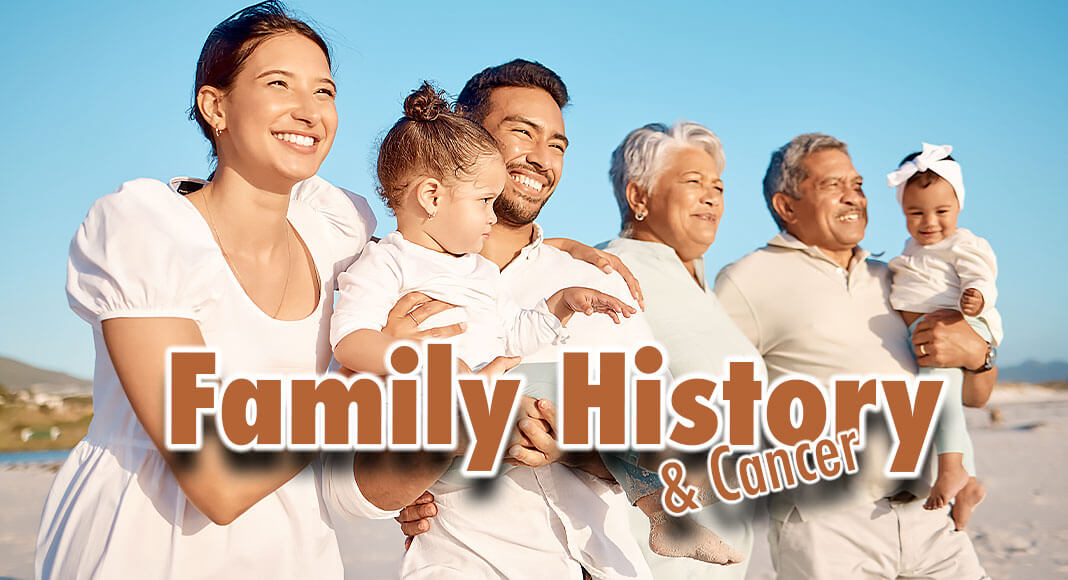
Mega Doctor News
Your family health history is a record of diseases and conditions that run in your family. Your family members may share genes, habits, and environments that can affect your risk of getting cancer.
What Information Do I Need?
Gather information about yourself and your relatives who are related to you by blood, including—
- Parents and grandparents.
- Aunts and uncles.
- Sisters and brothers.
- Nieces and nephews.
- Children.
Information should include—
- Who had cancer and what specific kinds did they have?
- How old were they when they were diagnosed with cancer?
- Are they still living? If not, at what age did they die and what caused their death?
How Do I Collect Family Health History Information?
Take time to ask about your family history of cancer at family gatherings. Respectfully ask your relatives to help fill in the gaps and confirm what you remember. Also, look through any family records, death certificates, or obituaries.
You can enter your family health history into My Family Health Portrait, update it over time, and print it out to share with your doctor and relatives.
Do I Have a Higher Risk of Getting Cancer?
If you have a family history of breast, ovarian, uterine, or colorectal cancer, you may have a higher risk for developing these cancers.
Tell your doctor if—
- A relative was diagnosed before age 50 with uterine, breast, or colorectal cancer.
- Two or more relatives on the same side of the family were diagnosed with uterine, breast, or colorectal cancer.
- A female relative was diagnosed with ovarian cancer.
- A male relative was diagnosed with breast cancer.
- You have an Eastern European or Ashkenazi Jewish ancestry.
Telling your doctor about your family health history is the first step to find out if you may have a higher cancer risk. It could help you and your doctor decide what tests you need to screen for cancer, when to start, and how often to be tested. Knowing your family health history also helps you and your doctor decide if genetic counseling or testing may be right for you.
What Is Genetic Counseling and Testing?
If your family health history suggests that you may carry a genetic mutation, your doctor can refer you to genetic counseling.
A genetic counselor is a specialist who asks you about your health history and your family’s health history and helps you decide if genetic testing is right for you. A genetic test uses your saliva or blood to look at your DNA. By looking for changes in the DNA, sometimes called mutations, the test can tell you whether you may have a higher risk of developing cancer than most people.
What Should I Do If I Have a Genetic Mutation?
Having a genetic mutation does not mean you will get cancer. You can do things to lower or manage your cancer risk. Talk to your doctor about—
- Tests. You may need to start getting screening tests earlier and get tested more often, or with different tests than other people.
- Medicine or surgery that could lower your cancer risk.
- Making healthy choices like quitting smoking, not drinking alcohol, exercising regularly, and keeping a healthy weight.
Which Hereditary Conditions Raise My Chances of Getting Cancer?
Several hereditary conditions can raise your chances of getting cancer. Two of the most common are hereditary breast and ovarian cancer (HBOC) syndrome and Lynch syndrome.
- People with HBOC syndrome have a higher risk for breast, ovarian, high-grade prostate, and pancreatic cancers.
- People with Lynch syndrome have a higher risk for colorectal, uterine, and ovarian cancers.
Learn about medical options for people with HBOC syndrome or Lynch syndrome.
Information Source: CDC










